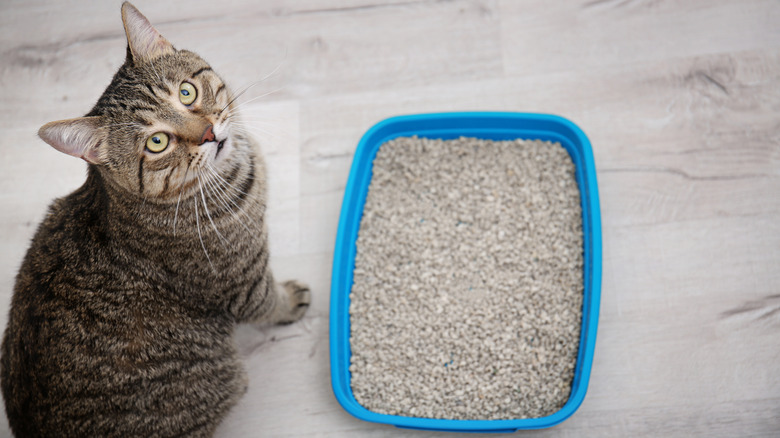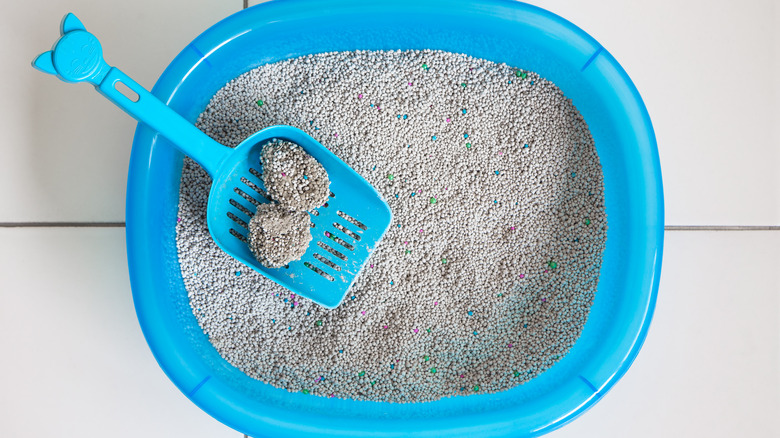Can Your Cat's Litter Box Affect Your Health?
Correction 05/06/22 A previous version of this article said 43 million U.S. households have cats. We have updated the stat to reflect the latest 2022 data, which is 45.3 million U.S. households.
Our cats don't ask much of us — some cuddles, playtime, open cans of food, and of course, a freshly cleaned litter box. A 2021-2022 American Pet Products Association (APPA) National Pet Owners Survey revealed that 45.3 million households own at least one cat (via Statista). That's certainly a lot of litter to scoop! With so many households exposed to cat feces, health experts at the Centers for Disease Control and Prevention have cautioned the public about the potential risks associated with Toxoplasma gondii, a parasite which infects warm-blooded animals and can be passed to humans through contaminated cat fecal matter.
Infection with the parasite can lead to a disease known as toxoplasmosis, reports the CDC. For generally healthy adults, toxoplasmosis is not likely to lead to any complications, and those infected may never even develop symptoms (via Mayo Clinic). For the immunocompromised, toxoplasmosis poses a bigger risk, potentially causing confusion, blurred vision, seizures, and lung problems, among other health issues.
In addition to physical health, a 2014 study in Brain, Behavior, and Immunity found that cat poop may also have an effect on one's cognitive abilities. In an examination of adults ages 65 and older, those infected with toxoplasmosis were found to perform more poorly on both short-term and long-term memory recall tests when compared to those who tested negative for toxoplasmosis.
Infected cat poop can impact behavioral and mental health
Some studies indicate that T. gondii infection can alter brain chemistry. In a 2016 study of 358 adults, one third of the participants were diagnosed with a psychiatric disorder called intermittent explosive disorder (IED), a condition characterized by impulsive outbursts of aggression (per Scientific American). Of those adults with IED, 22% tested positive for toxoplasmosis, compared with 9% of the healthy control group.
Even more interesting, exposure to infected cat feces may play a role in behavioral changes suitable for the business-minded. A 2018 study published in the scientific journal Proceedings of the Royal Society B found that students infected with the parasite were more likely to study business. Similarly, T. gondii-positive adult business professionals were more likely to open their own businesses. Not only that, but researchers found that countries with higher rates of infection had lower numbers of respondents reporting "fear of failure" in regards to entrepreneurial endeavors.
As one of the world's most common parasites, according to Mayo Clinic, T. gondii has infected an estimated 2 billion people around the world (via Proceedings of the Royal Society B). With seniors, pregnant individuals, and the immune-compromised particularly vulnerable, it's important to take proper precautions with your cat and when handling your cat's litter box in order to prevent infection. Experts at the Mayo Clinic strongly encourage keeping cats indoors to prevent contamination from ingested infected birds or animals. And clean that litter box daily, using protective gloves and a face mask.


